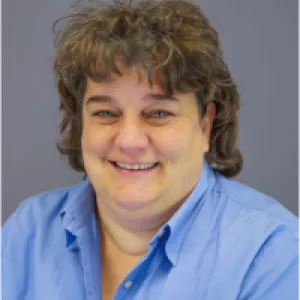Teams & Functions
Executive Team

Kellie Baker

LaDonna Battle

Christie Edwards

Cindy Ehlers

Senitria Goodman

Mike Lewis

Melissa Owens

Michael Smith

Trillium Health Resources manages care for those with serious mental health conditions, intellectual/developmental disabilities, substance use disorders, and traumatic brain injury throughout North Carolina. Working collaboratively with community partners, Trillium connects NC Medicaid and Tailored Plan members, as well as those who are uninsured and underinsured, to critical services they deserve and require. Trillium is focused on transforming lives and building community well-being through partnership, service access, and proven solutions designed to help those we serve reach their fullest potential.
To support this mission, Trillium is organized into functional teams. Teams incorporate experienced staff who are content experts and focused on the daily operations within their area.
About Our Teams Functions
The primary purpose of the Business Management Team is the organization of the fiscal and budgetary operations of Trillium. The team is responsible for sound financial planning and for ensuring compliance with all fiscal policies at the local, state and federal levels. The Business Management Team comprises the following areas: general budget, finance, and claims processing.
Clinical Operations is a person-centered, assessment-based interdisciplinary approach to integrating behavioral health services, I/DD services and supports, primary health care, and natural and community social support services. This function is completed in a cost-effective manner in which an individual’s needs and preferences are assessed, a comprehensive care plan is developed, and services are managed and monitored by an assigned care manager.
Clinical Operations has wide-ranging reach and includes the following teams:
- I/DD Care Management: Regional care managers work with individuals on the Innovations Waiver, with I/DD, receiving 1915i services, or receiving long term services and supports (LTSS).
- Care Transitions and Transitions to Community Living (TCL): Assist individuals living in residential settings to explore independent living if they desire to transition. The Trillium Support Transition and Re-entry (TSTAR) also work with recently incarcerated individuals.
- Care Clinical Management: Oversees Regional Care Teams who work directly with individuals.
- Children and Youth Services: Communicate with Departments of Social Services and families of children with complex pediatric needs.
- Clinical Integration and Population Health: The Population Health department integrates discharge planning, clinical nursing services, targeted population health initiatives, and preventive outreach to support members across the care continuum and promote better health outcomes.
The Communications and Marketing department creates printed and digital resources to educate members and their family, providers, and the public. These brochures, websites and other materials help explain the services coordinated by Trillium, along with information about managed care organizations, Tailored Plans, and the Medicaid system in North Carolina. Communications helps promote Trillium to the broader communities we serve through corporate sponsorships and our social media accounts.
Collaborates, Develops and executes a Strategic Training Plan that aligns and supports the overall strategic direction of the enterprise.
Assesses current training programs, tools, instructional design, learning platforms and modifies content and approach based on best in class practices.
The Learning & Development Department coordinates training offered to both providers and the public, including CIT and MHFA. Learning & Development oversees My Learning Campus, the free, online learning platform that providers tip sheets and recorded trainings to the public.
Staff on the General Counsel team respond to requests for the review of an Adverse Benefit Determination for Medicaid recipients, appeals, and reconsideration requests. Medicaid members have the right to appeal decisions made about service requests. State-funded services are not an entitlement, but in some circumstances, denials can be appealed by recipients.
Compliance confirms that departments within Trillium follow state and federal contracts, guidelines, and regulations. They initiate annual and ad-hoc audits to ensure adherence to all of Trillium’s policies and procedures and contractual obligations.
Program Integrity responds to complaint and grievance reports, provider concerns, and claims on fraud/waste/abuse.
The Human Resources team ensures Trillium is staffed with a highly competent workforce that supports its mission. Trillium retains qualified employees through a competitive salary and benefits package, training and development opportunities, and practices that treat employees with respect and equality.
The Information Technology teams strengthen Trillium’s use of information, analytics, and technology for both staff and members served. IT staff from both the Business Informatics and IT Operations teams work collaboratively across departments to:
- secure all data and ensure compliance with all IT standards;
- innovate the application of new technologies to improve organization operations;
- develop reports and applications based on business and clinical needs;
- implement software to provide staff with the tools to improve care coordination and facilitate record sharing;
- maintain databases and information systems;
- support hardware and equipment supplies for the organization; respond to provider requests for technical assistance with online portals and access;
- oversee physical plant operations
Community Health and Innovation oversees exciting and unique projects that meet personalized needs identified across our counties. Through inclusive playgrounds, community opportunity centers, and technology solutions, Community Health and Innovation takes a creative approach to building health and well-being. The TULA assistive devices, managed by this team, has been recognized nationally for its ability to boost independence and engaging support features.
- Housing Services: Works with community representatives and agencies to help secure decent, safe, and affordable housing for members.
- Supports Intensity Scale: The Supports Intensity Scale (SIS) reflects a positive way of thinking to focus on the support needs for individuals with intellectual/developmental disabilities (I/DD) to be successful. The SIS results will provide useful information for development of Individual Support Plans (ISP) because it gathers a wealth of information about an individual’s support needs.
- Specialty Care: Helps secure assistive devices, house modifications, and technology for individuals to live as independently as possible.
- Neighborhood Connections: Promotes healthy opportunities in our communities by focusing on employment, community inclusion, housing, transportation, education, food insecurity, and interpersonal safety/toxic stress.
Trillium maintains relationships with community-based organizations that offer resources for unmet health-related resource needs. Staff also engage with members and recipients in community settings to improve access to resources that address unmet health-related resource needs and promote wellness and stability practices. - Value-Added Services and Member Incentive Program: Staff collect requests for value-added services including free cell phones or gym memberships. They also process eligible activities for member incentives. Having a cell phone to make doctor’s appointments and rewards for attending well visits all help encourage better health outcomes.
The Member Services team is staffed with experienced agents, qualified professionals, and licensed clinicians whose primary purpose is to give members/recipients and their families, providers, and other community stakeholders accurate and relative information in regards to Trillium, our network of providers, and the services that are available. Our Member and Recipient Service is staffed to help answer questions about services available and connect members/recipients with providers.
Member Engagement staff explore innovative ways to reach individuals who may benefit from services but have not been introduced to Trillium.
The Registry of Unmet Needs team tracks individuals who have applied for the Innovations Waiver to help identify potential services that can assist while they await their slot.
DSS Engagement and Strategy develops relationships with local Departments of Social Services (DSS) to determine specialized needs for each county and maintains open communication.
Medical Affairs
The Medical Affairs team includes Trillium’s medical officers who provide clinical oversight to all clinical components within Trillium. The medical officers ensures Trillium’s objective to have qualified clinicians accountable to the organization for decisions affecting members.
The medical officers assist in the following capacities:
- Chairperson of the Quality Improvement Committee
- Member of the Global Quality Improvement Committee
- Consultation with Utilization Management and the Call Center on complex situations
- Oversight of the Credentialing Program for Providers
- Communication of clinical policy from NC DHHS
Staff in the Medical Affairs team helped launch the Child First initiatives, and maintain support for the agencies operating these programs.
Utilization Management
Utilization Management reviews, manages, and monitors the use of mental health, substance use, and intellectual/developmental disability services. UM also reviews utilization data to evaluate and ensure that services are being provided appropriately within established benchmarks and clinical guidelines and that services are consistent with the authorization and approved plan. Their goal is to ensure that members receive the right service, at the right time, at the right level, while creating the most effective and efficient treatment possible.
Quality Management
The Quality Management Program is a comprehensive, proactive program that provides the structure, process, resources, and expertise necessary to systematically define, evaluate, monitor and ensure that high-quality, cost-effective care and services are provided to members. Additionally, they ensure that compliance with national accreditation standards is met and ongoing throughout the term of the contractual agreement.
This program includes a continuous, objective, and systematic process that:
- monitors and evaluates key indicators of care and services
- identifies opportunities for improvement
- develops and implements interventions that address the identified opportunities
- re-assess to demonstrate the effectiveness of applied program interventions
Trillium’s provider network is managed and maintained through efforts of the Network Management Department. They are responsible for the development and maintenance of the provider network to ensure we meet the needs of members and recipients while ensuring choice and best practices in services. Network oversees the following:
- Network Development: determine needs and recruit new providers
- Provider Engagement and Satisfaction: Answers inquiries and provides support to contracted providers
- Value-Based Payments: focused on quality of care along with care access to ensure providers are meeting expectations
- Network Accountability: Includes Auditing (initial site reviews, monitor compliance, and complaint investigations) and Monitoring (monitors contracts and performance activities)
Trillium Health Resources is widely accessible and deeply integrated into our communities to help improve access, reduce administrative burdens on providers, and increase the quality of services. To do this, we have five Regional Offices, each with a Regional Operations Director dedicated to your area.
Each region has a Regional Advisory Board to ensure the local voice is heard on the Trillium Governing Board. The Governing Board collaboratively plans, budgets and monitors Trillium operations and composed of an equal number of members from each Regional Advisory Board. This two-tiered governing structure allows for accountability of services within our communities, a local service model and local advocacy opportunities for individuals and family members.
Community Liaisons attend meetings and events in their local communities to help in these efforts.